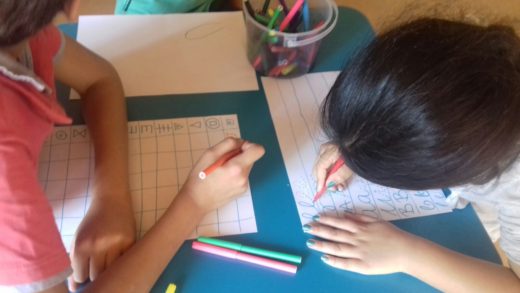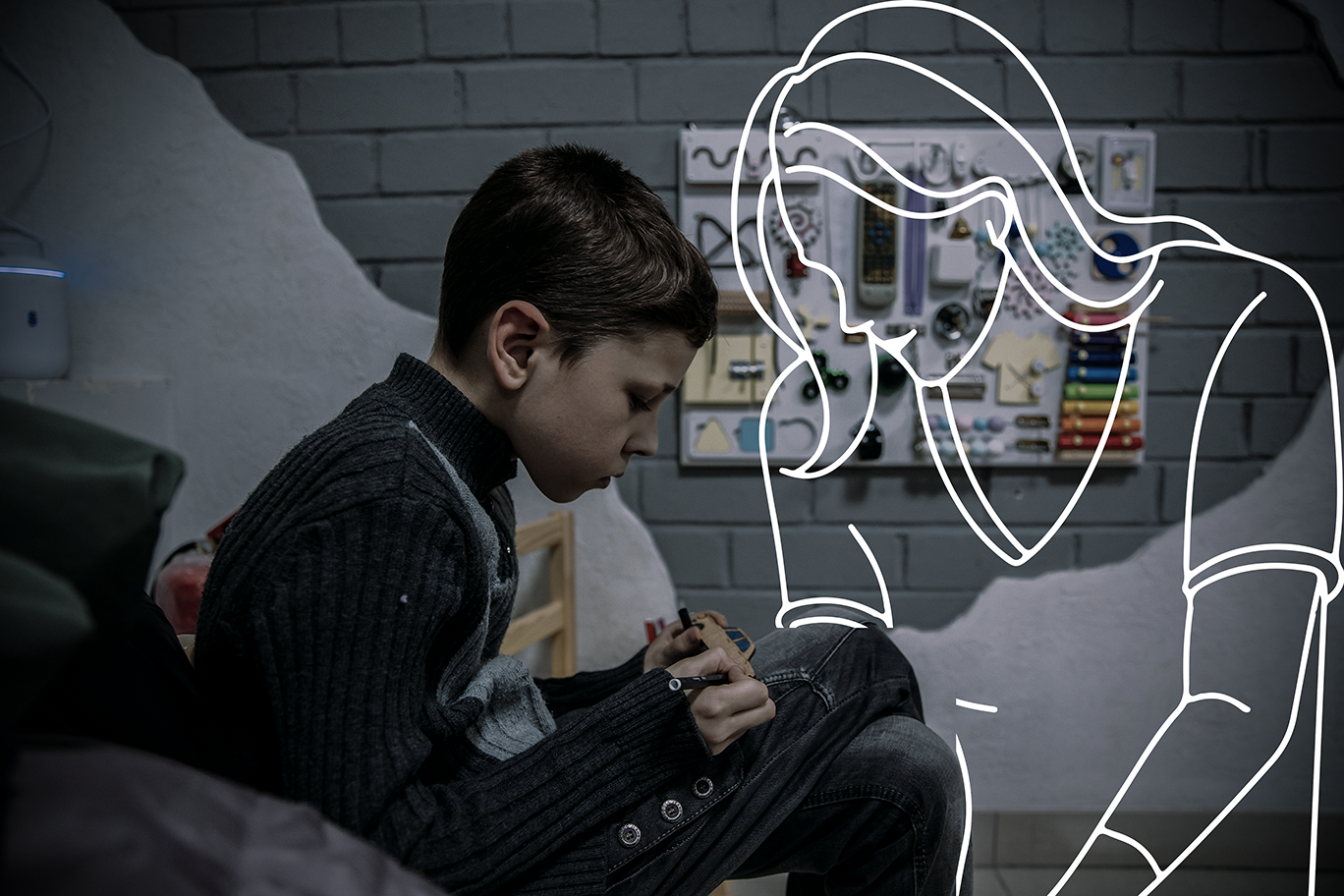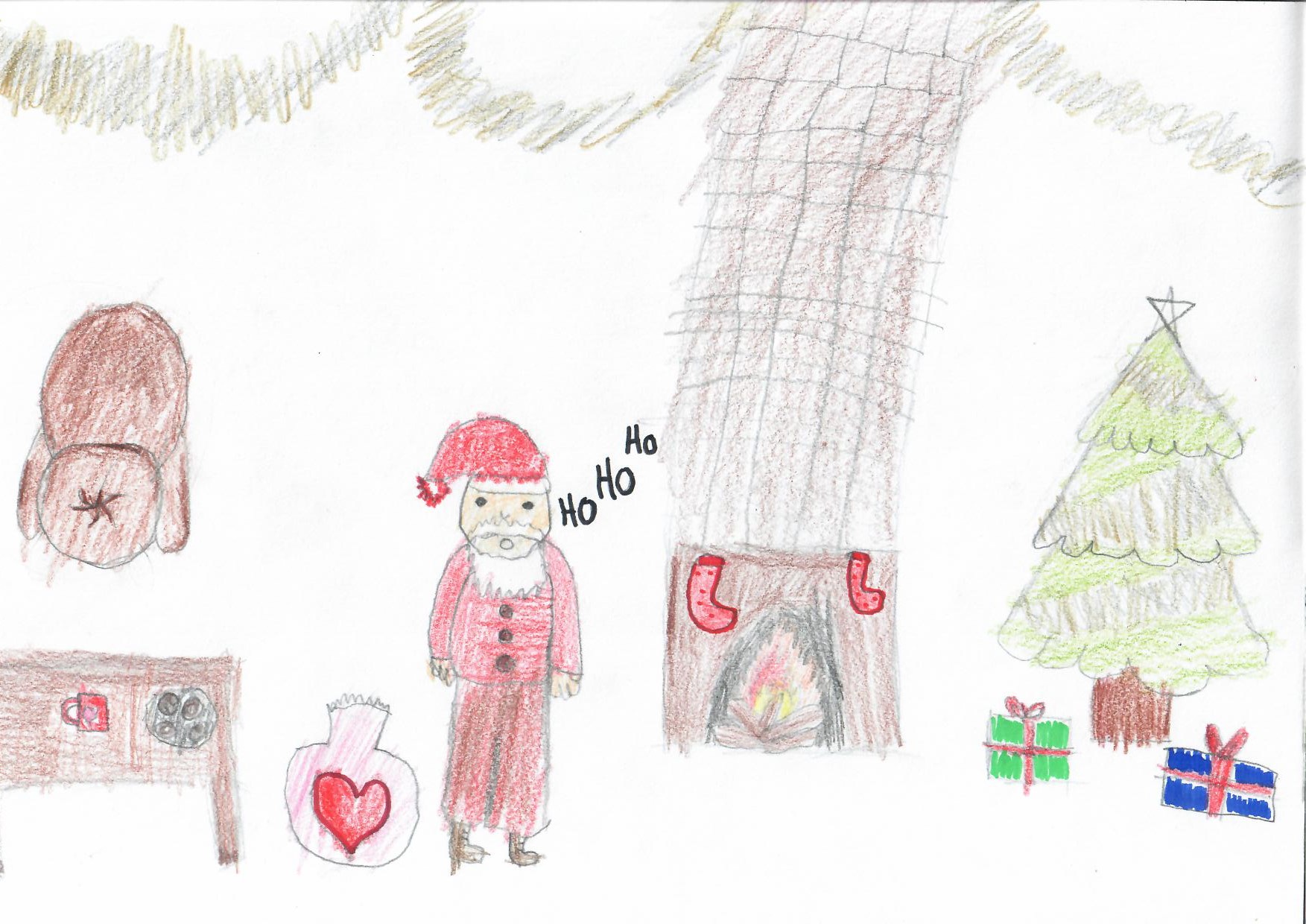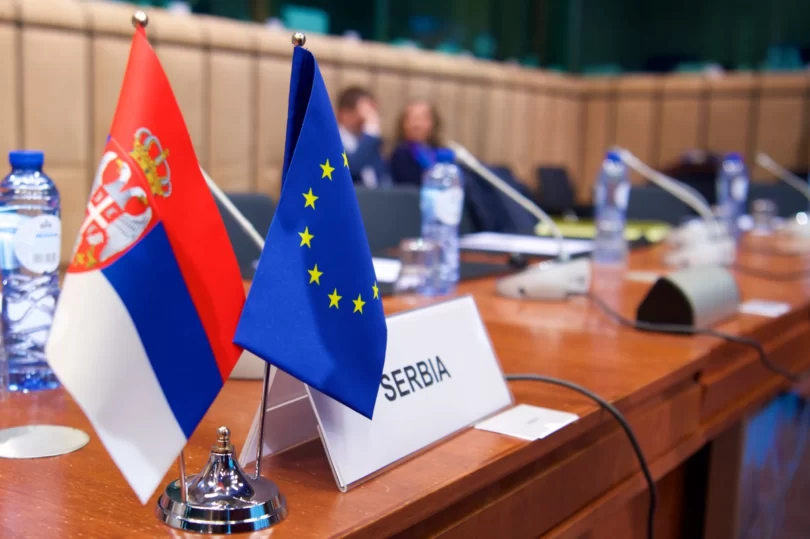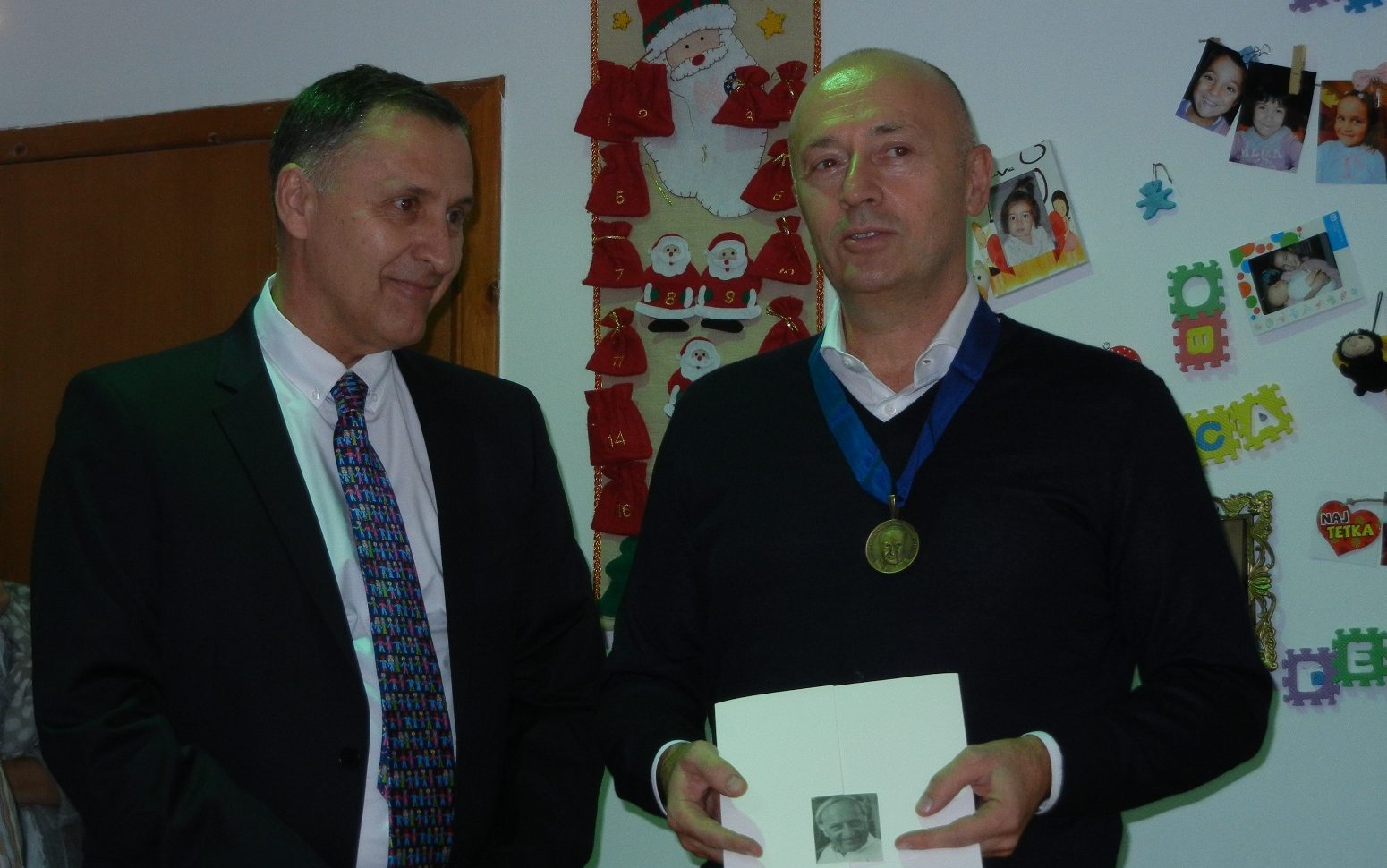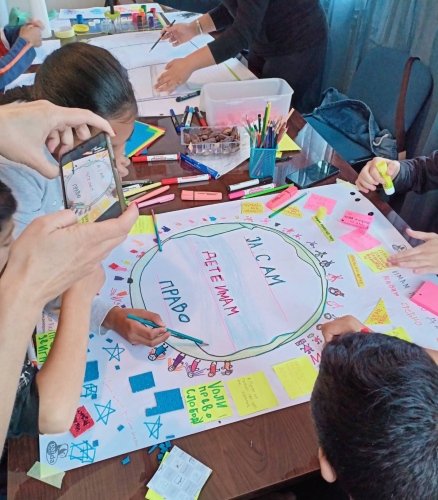Nish is the third largest city in Serbia with population of nearly 190.000. According to the state statistical office in January 2017 the number of unemployed work-capable people was 30.000 with over a quarter of the population living in poverty.
Nish also has a large Roma population which for the most part lives in a generational poverty cycle. Many of the city’s Roma people are clients of SOS Children’s Villages. For them SOS Children’s Villages is the only chance to break that vicious cycle.
Baby Bojan is ten months old. He is a happy little boy who wins you over with his big wet eyes and adorable laugh. His mom, Danka, is only 13 years older than him.
Danka and her twin sister Anka lost their dad years ago. Their mom, Hajrija, has three older children who are in their late twenties with families of their own. Despite only finishing primary school, Hajrija knew the value of education and was committed to providing her two youngest with a life in which they would focus on education.
„When I found out Danka was pregnant, it killed me,“ Hajrija confides as she pushes the stroller with her grandson towards the nearest park. „What did I miss? Where did I make a mistake? I couldn’t forgive myself.“
Danka was deep in the second trimester when the pregnancy was revealed. The girl suffered abuse from her boyfriend, an underage father of her child, which she couldn’t deal with.
Hajrija knocked on many doors asking for help, but faced only rejection. The birth of Bojan brought in additional costs for the family which they couldn’t afford. That is when SOS Children’s Villages came into the picture.
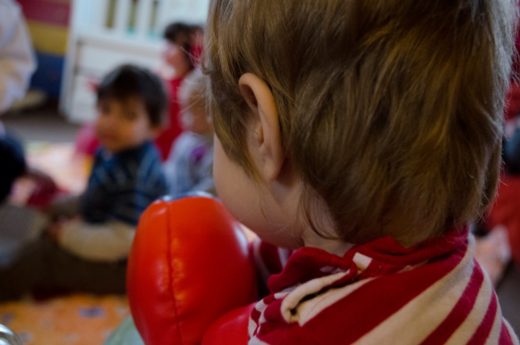
Opening doors
„From the moment I met with Ana and her colleagues, I felt as if now I have someone who cares and will fight as much as I do,“ says Hajrija. „Only this someone knows the ways through the complicated system, knows what question to ask and the right doors to open.“
Together with Ana, Hajrija managed to successfully navigate the system and obtain legal guardianship over her grandson. „It was a very hard and complicated process. I couldn’t have done it on my own,“ Hajrija stresses. „As a widowed, uneducated Roma woman, many doors were closed for me. Ana opened them.“
While the legal battle was fought, Danka fell under the influence of her boyfriend and fled to his home in May 2017. „It was my second death,“ Hajrija tears up. „She left to live with a person and his family who abused her. I just didn’t know why.“
Ana correctly evaluated that Anka, Dankaa’s twin sister, would be Hajrija’s support and focused on the young aunt, while in parallel trying to reach Danka. „[Danka] is still a child,“ Ana says. „She didn’t have the chance to live her own childhood when she became a mother. She became overwhelmed with the promises of her abusive boyfriend. Danka was deeply confused and deeply traumatized.“
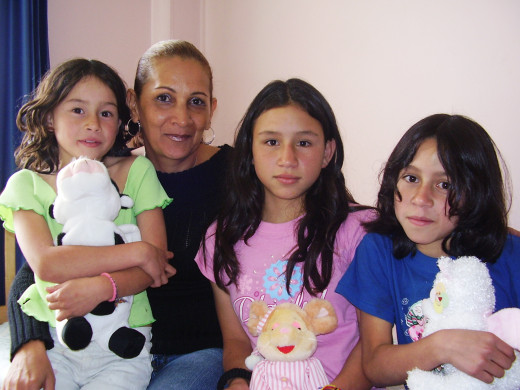
Saving children’s lives
With Danka fleeing, Hajrija faced a practical challenge – feeding baby Bojan. SOS Children’s Villages jumped in with providing baby formula for the little boy. „Formula was too expensive for us. SOS Children’s Villages literally saved my grandson’s life,“ Hajrija says.
„We finally got her back after a month. They beat her. They abused her. My heart bled. She regretted her decision and begged for my forgiveness. I had nothing to forgive her for. It was me who failed my child. But, I had to be strict. Bojan got used to the formula and I insisted we continue. I couldn’t allow for my grandson to go through another possible trauma,“ Hajrija cries pushing the stroller.
In the park, the women look like anything but a three-generation family. Danka and Anka pose at the camera like typical teenagers, while Hajrija is focused on the baby.
Bojan’s giggles make his teenage mother smile. Danka takes him lovingly while Hajrija looks at them with teary eyes. Danka takes her baby to the monkey bars and the swings. Hajrija is close by, giving her daughter just enough motherly advice without being condescending. Danka accepts all of it gladly. They are happy.
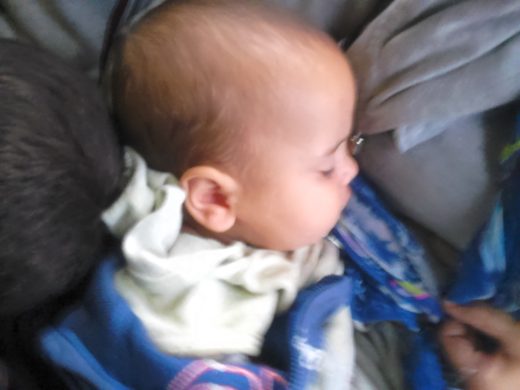
Advocating for children
Ana and Ankica observe the playground photo session from the sidewalk. „I honestly can’t believe we’re reached this point,“ Ana says. „Just three months ago Danka was hostile towards her mother. She would shout insults and threats at her mom in the hallways of the social service. She was abused, but deeply trapped in a Stockholm syndrome. She came a long way in such a short time. Danka now focuses on her education and her future with her child. She no longer sees her abuser as her saviour. She realizes who really loves her and cares for her – her mom.“
The shift in Danka didn’t come on its own. It is a result of long hours of counselling and continuous advocacy work of co-workers of SOS Children’s Villages with the school, social services and police.
Danka met with her former boyfriend two nights before the playground photo shoot. She says he tried to promise her a future again if only she would come back to him. Danka says she saw right through him and won’t fall for it again. Her twin sister, Anka, is by her side. At 14, the young aunt has clear goals for her future: finish school, find a job, help her sister and her nephew.
„It’s all because of you,“ Anka says. „It’s all because of SOS Children’s Villages. You helped us realize our strength. Is there a petition we could sign for your programme to go on?“



